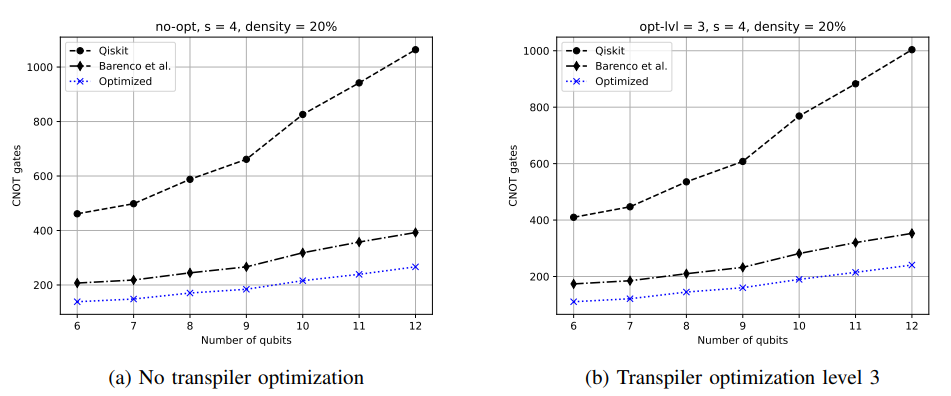R. Vale, T. M. D. Azevedo, I. C. S. Araújo, I. F. Araujo and A. J. da Silva, “Circuit Decomposition of Multi-Controlled Special Unitary Single-Qubit Gates,” in IEEE Transactions on Computer-Aided Design of Integrated Circuits and Systems, doi: 10.1109/TCAD.2023.3327102.

Abstract
Multi-controlled unitary gates have been a subject of interest in quantum computing since their conception and are widely used in quantum algorithms. The current state-of-the-art approach to implementing n-qubit multi-controlled gates with a single target without relying on auxiliary qubits or approximate results involves the use of a quadratic number of single-qubit and CNOT gates. However, linear solutions are possible for the case where the controlled gate is special unitary, SU(2). The decomposition of an n-qubit multi-controlled SU(2) gate requires a circuit with a number of CNOT gates proportional to 28n. In this work, we present a new decomposition of n-qubit multi-controlled SU(2) gates that requires a circuit with a number of CNOT gates proportional to 20n and proportional to 16n if the SU(2) gate has at least one real-valued diagonal. The proposed algorithms produce the most efficient known circuits and improve the existing algorithm by reducing the number of CNOT gates and the overall circuit depth. As an application, we show the use of this decomposition for sparse quantum state preparation. Our results are further validated by demonstrating a proof of principle on a quantum device accessed through quantum cloud services.
Authors
Rafaella Vale, Centro de Informática, Universidade Federal de Pernambuco, Recife, Pernambuco, Brazil
Thiago Melo D. Azevedo, Centro de Informática, Universidade Federal de Pernambuco, Recife, Pernambuco, Brazil
Ismael C. S. Araújo, Centro de Informática, Universidade Federal de Pernambuco, Recife, Pernambuco, Brazil
Israel F. Araujo, Centro de Informática, Universidade Federal de Pernambuco, Recife, Pernambuco, Brazil; Department of Statistics and Data Science, Yonsei University, Seoul, Republic of Korea
Adenilton J. da Silva, Centro de Informática, Universidade Federal de Pernambuco, Recife, Pernambuco, Brazil

Comentários desativados